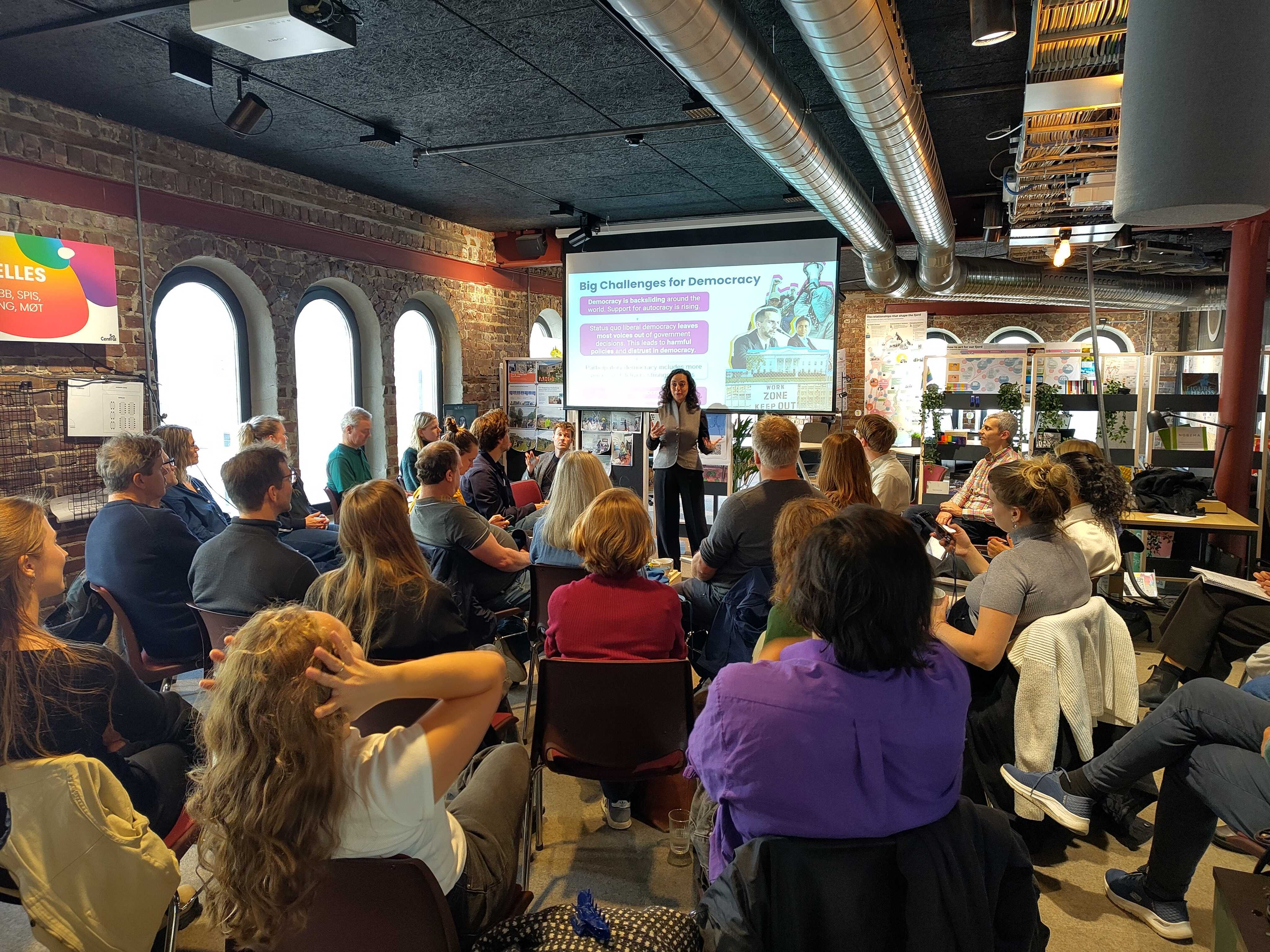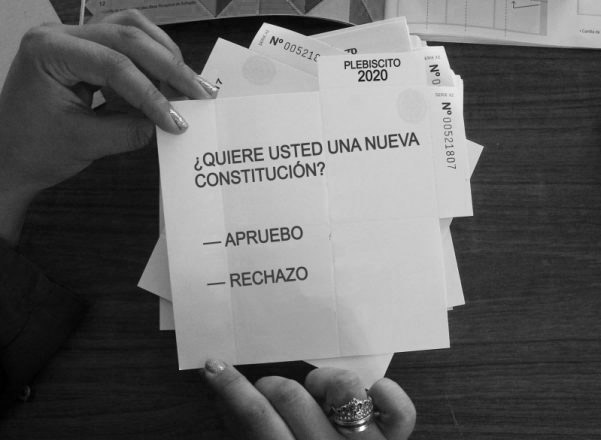
On October 14th, Karibu, SoCentral and Pådriv came together in Oslo to co-host the open conversation, “Rewriting the Story of Democracy“.
The event provided a space for a conversation on how we can strengthen democracy worldwide at a moment when trust in democratic institutions is under real pressure.
Greta Ríos and Josh Lerner from the global “People Powered” network joined the conversation and shared on the efforts helping governments and communities open up decision-making through tools like participatory budgeting, citizens’ assemblies, and even legislative theater. The new Democracy Narratives Campaign is also tackling how we talk about democracy, moving beyond the narrow definitions that leave people disengaged. To reinvigorate support for democracy, there is a need to offer more meaningful visions of democratic practice and participatory mechanisms.
Lessons from Chile
As part of the event, Colombina Schaeffer from Karibu partner Ciudadanía Inteligente brought lessons from Chile’s recent constitutional processes, where citizens attempted to draft a new constitution through constitutional assemblies. These processes emerged after the massive social protests of 2019, when Chileans demanded profound political and social change. In response, a national plebiscite (direct public vote on issue) in 2020 approved the creation of a Constitutional Convention, a citizen-elected body tasked with writing a new constitution to replace the one inherited from the Pinochet dictatorship.

The Convention was historic in several ways. It was the first constitution-drafting body in the world to be elected with full gender parity, ensuring equal representation of women and men. It also reserved 17 seats for Indigenous peoples, giving historically excluded groups a direct voice in shaping the country’s future. In addition, independent candidates and social movement leaders were able to run outside of traditional political parties, opening the door to new forms of representation.
Citizen participation was built into the process through plebiscites, popular initiatives, and Indigenous consultations. For example, more than 2,000 citizen proposals were submitted online, and those that gathered 15,000 signatures were formally debated by the Convention. This represented one of the most ambitious experiments in participatory democracy in Chile’s history.
Despite these innovations, the draft constitution produced in 2022 and 2023 were ultimately rejected in a national referendum. Yet Schaeffer emphasized, these outcomes do not mean the participatory model was a failure. Instead, they highlight the need for clearer design, stronger communication, and realistic timelines to ensure that democratic innovations can succeed.
The Chilean experience shows that people are eager to participate, but that participation must be carefully structured to build legitimacy, trust, and lasting impact.

Why Narratives Matter
The event highlighted that democracy is not only about institutions. While strong institutions remain essential and must be protected, democracy also depends on culture and narrative. When people see democracy as slow, distant, or broken, they tend to disengage. But when it is framed as local power, diverse voices, and collective problem-solving, it becomes something people want to be part of.
People Powered’s “Democracy Narratives Campaign” therefore aims to:
- Compile and develop new democracy narratives, messaging, and framing strategies that increase engagement and support for democracy.
- Generate more aligned and strategic communications by democracy organizations and advocates, using shared narratives and tools.
- Build support and resources for further development, testing, and application of new narratives and framing strategies at the global, national, and local levels.
You can learn more about the campaign here: https://www.peoplepowered.org/news-content/introducing-the-democracy-narratives-campaign
